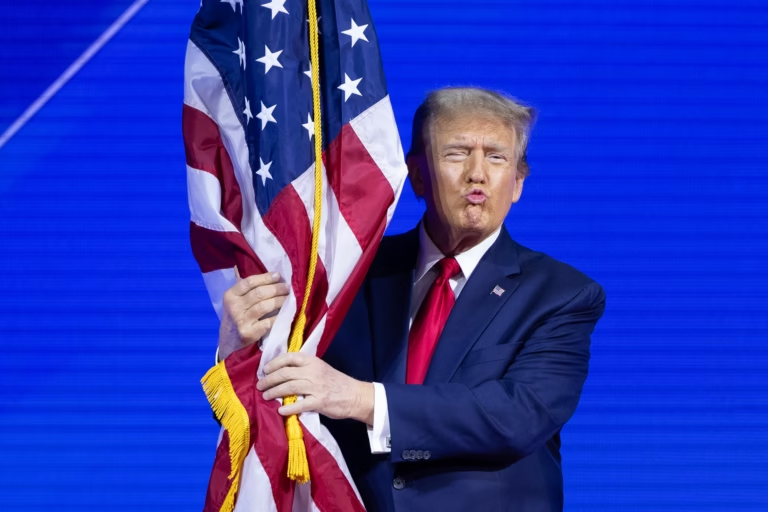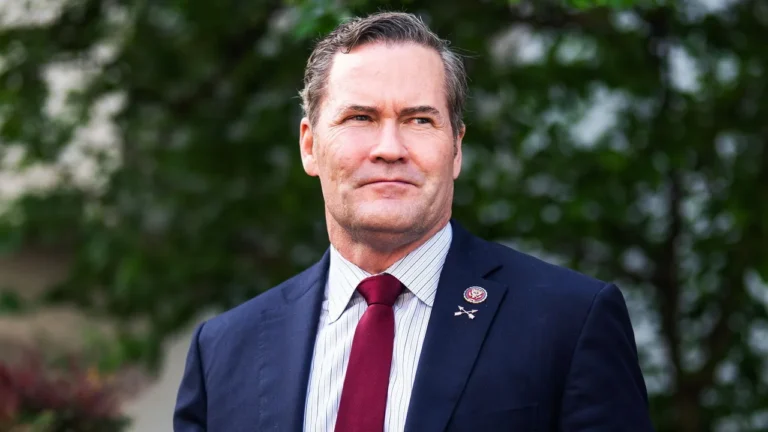In a significant diplomatic development, US President Donald Trump announced that negotiators are en route to Moscow to propose a US-backed 30-day ceasefire in the ongoing Ukraine conflict. This initiative underscores Washington’s commitment to facilitating peace in the region.
US Diplomatic Mission
President Trump revealed that special envoy Steve Witkoff is leading the US delegation to Moscow. Witkoff, appointed as Special Envoy to the Middle East in November 2024, has previously played pivotal roles in negotiating ceasefires, notably between Israel and Hamas in January 2025. His direct and assertive negotiation style has been instrumental in achieving temporary truces in complex situations.

9Sen. Marco Rubio, R-Florida, speaks during a campaign rally for Donald Trump in Raleigh, North Carolina, on Nov. 4. Photo: The Associated Press)
US Secretary of State Marco Rubio emphasized that the responsibility now lies with Russia, stating that negotiations are the sole pathway to ending the conflict. This sentiment reflects a broader international consensus on the necessity of diplomatic engagement to resolve the crisis.
Putin’s Visit to Kursk
Concurrently, Russian President Vladimir Putin made an unannounced visit to Russian troops in the western region of Kursk. This area has been a focal point since Ukrainian forces launched a surprise incursion last year. Russian state media reported that operations to expel Ukrainian forces from Kursk are nearing completion, with Kremlin spokesperson Dmitry Peskov highlighting significant progress.
During his visit, President Putin ordered the military to treat captured Ukrainian soldiers as terrorists, denying them protections under the Geneva Conventions. He also indicated that foreign fighters supporting Ukraine would not receive these protections, marking a stark stance on the treatment of detainees.
Ceasefire Negotiations and Economic Implications

President of Ukraine, Office of the President of Ukraine by weforum.org
The proposed 30-day ceasefire includes provisions for halting hostilities across all domains—air, sea, and land. It also calls for the exchange of prisoners of war, release of civilian detainees, and the return of children forcibly transferred from Ukraine to Russia. Ukrainian President Volodymyr Zelenskyy expressed that Kyiv is exerting maximum effort to protect its soldiers, acknowledging Russia’s intensified pressure on Ukrainian troops.
President Trump warned of “devastating” economic measures against Russia should Moscow reject the ceasefire proposal. He emphasized the potential for severe financial repercussions, underscoring the urgency of achieving peace. Trump noted receiving “positive messages” regarding the ceasefire but cautioned that optimism alone is insufficient, highlighting the gravity of the situation.
Kremlin’s Position
The Kremlin has yet to publicly articulate its stance on the proposed ceasefire. Foreign Ministry spokesperson Maria Zakharova stated that Russia is prepared to engage in discussions with the US about a potential peace initiative “as early as today.” Reports suggest that President Putin may address the topic during an upcoming press conference with Belarusian President Alexander Lukashenko.

(President Vladimir Putin on a Visit in Kursk Region)
Historically, Moscow has opposed temporary ceasefires, arguing they provide Ukrainian forces an opportunity to regroup. This perspective adds complexity to the current negotiations, as both sides weigh the strategic advantages and risks associated with a temporary truce.
Strategic Movements on the Ground
Russian military officials claim substantial advancements in the Kursk region, asserting that 86% of previously occupied territory has been recaptured. General Staff Chief Valery Gerasimov reported significant gains, including the capture of 24 settlements and 400 prisoners in recent operations.
Conversely, Ukrainian forces are reportedly retreating from certain positions in Kursk to minimize losses. Army Commander-in-Chief Oleksandr Syrskyi emphasized prioritizing the preservation of Ukrainian soldiers’ lives, indicating a strategic withdrawal to more favorable conditions when necessary.
As the US delegation arrives in Moscow, the international community closely monitors these developments, hopeful that diplomatic efforts will yield a cessation of hostilities and pave the way for a lasting peace in the region.

